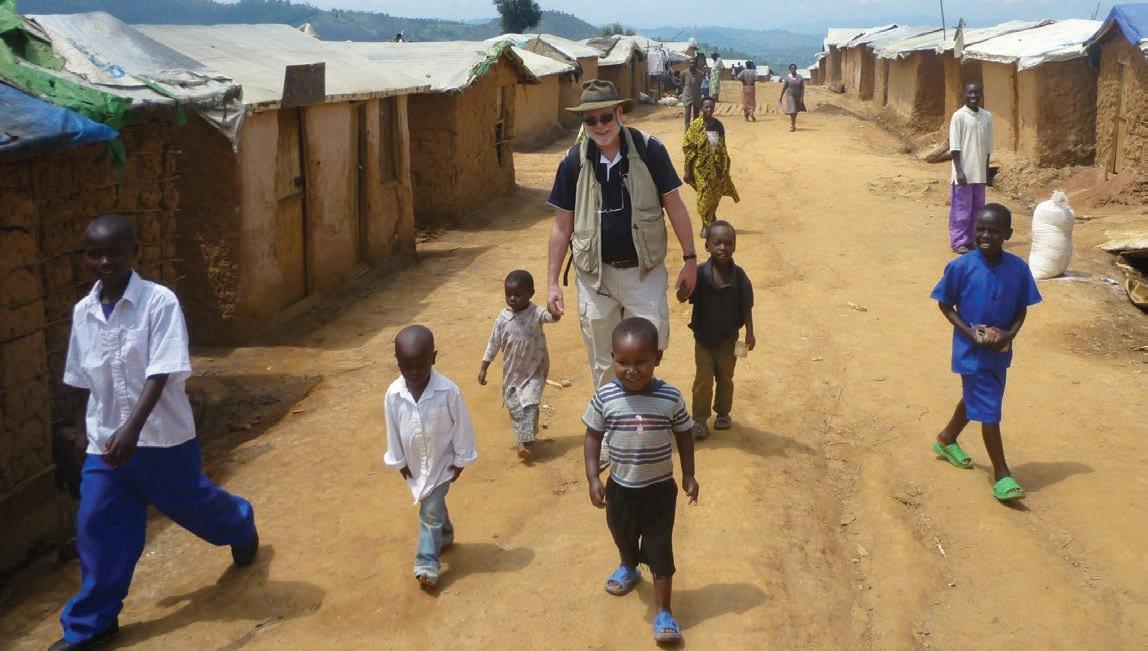Changing Lives and Futures Terri R. Miller
E
15 to a man nine years her senior, Mariam’s dreams of marriage took her away from the day-to-day realities of refugee life in northern Jordan. She saw herself marrying dressed in white, having children, living a fairy tale relationship. She—and her honor—would be protected from the precarity of life as a female child in a family left without a male head of the household after her father’s death. The International Catholic Migration Commission (ICMC) knows that Mariam’s case is not an isolated one. The organization is working in Jordan and other countries to reverse the devastating trend of child marriage among refugee and host communities like Mariam’s. The UN Agency for Children (UNICEF) says child marriage robs one in five girls worldwide of their childhood, with devastating impacts on their health and integral human development. Child brides are more likely to experience domestic violence and less likely to complete their education or earn an income. An ICMC report from July 2021 identified extreme poverty and gender inequality as key factors behind child marriage. Both affect the Syrian refugee population in Jordan disproportionately. Approximately 80% of displaced families live in extreme poverty, a situation that the COVID-19 pandemic has exacerbated. Gender discrimination expresses itself in exaggerated male authority figures, harmful negative traditions, and restricted movement and access to schooling and jobs for girls and women. For many families living in humanitarian crises, child marriage is a survival strategy—a way for parents to ensure their female children are provided for and protected from sexual violence in dangerous situations. The ICMC report showed that in 2015, one in three Syrian females who registered for marriage in Jordan was under the age of 18, with real rates likely higher, given the number of unregistered marriages. With its efforts to build better futures for refugee girls like Mariam, ICMC is responding to its mandate to serve and protect uprooted people throughout the world, regardless of faith, race, ethnicity, or nationality. Founded by Pope Pius XII in 1951, ICMC is tasked with promoting Catholic-inspired responses to the needs engaged at age
28
c21 resources | spring/summer 2022
Girls pose on their walk to school in the Zaatari refugee camp near Mafraq, Jordan.
of people on the move. With its worldwide member network of Catholic Bishops’ Conferences, ICMC strives to put Catholic Social Teaching into action to restore dignity to refugees, asylum seekers, internally displaced people, victims of human trafficking, and migrants, and to inspire change while meeting the challenges of migration today. Its mission is to show “God’s merciful love to our migrant brothers and sisters,” which, as Pope Francis said, “is the cause of Christ himself.” Children are among the most vulnerable of uprooted people and have a special priority in ICMC’s work to protect the human rights and dignity of migrants. For Mariam, dreams quickly collided with a hard reality that chipped away at her rights and dignity. Getting engaged meant that she had to drop out of school. A lack of understanding with her fiancé led them to break off the engagement, and Mariam found herself socially isolated. She struggled with low self-esteem and anxiety and found it difficult to interact with others in the community. Fortunately, ICMC staff became aware of Mariam’s situation. She was able to enroll in life-skills courses for girls and young women who are survivors or at risk of child marriage. Offered at ICMC’s Protection Center in Irbid, Jordan, the courses respond to the challenge of child marriage in ways that are felt at both an individual and community level. ICMC staff empower the at-risk participants to respond positively to threats to their safety and well-being, and develop healthy ways of coping with the stresses of displacement and poverty. They acquire practical—computer, financial, decision-making—skills. They learn about their health and rights. Meeting with their peers on a regular basis opens doors out of social isolation. Through the courses, ICMC inspires change in the community as well by calling into question negative coping mechanisms and unequal roles and practices related to girls and women. ICMC takes other actions to counter gender inequality in refugee communities like Mariam’s and those in host countries that are welcoming displaced people. One step is to train community leaders as social change influencers who raise awareness about child marriage and other
















